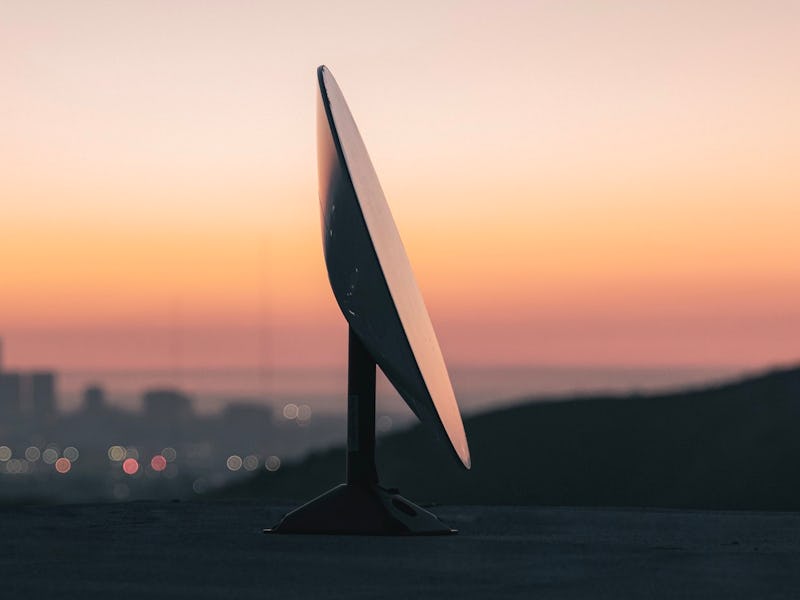SpaceX Starlink price: Elon Musk's space internet gets a price tag
SpaceX's internet connectivity constellation Starlink may have a price point lined up.

How much will SpaceX's Starlink internet service cost? Information provided to early beta testers suggests it won't come as cheap as some had hoped.
According to an email shared Tuesday by CNBC, Starlink will initially cost $99 per month. Users will also have to pay $499 for a Starlink Kit that enables the connection, featuring a ground terminal, a tripod, and a wifi router.
Compared to high-speed residential Internet access in the United States, $99 per month is about the norm -- though standard Internet comes much cheaper, and Starlink's speeds are not expected to be nearly as fast as high-speed residential Internet.
The email was sent to selected members of the public that previously expressed interest in the service. The email is an invite to those users to join the "Better Than Nothing" beta test, an expansion of the private beta tests that have taken place over the past few months.
The beta test is the next step forward for SpaceX's developing Starlink project. The goal is to offer high-speed, low-latency internet access to almost anyone with a ground terminal and a view of the sky. It plans to beat existing satellite providers by placing the craft in orbit much closer to the ground, 550 kilometers (340 miles) up, and launching a much larger overall number of satellites. SpaceX has applied for permission to operate up to 42,000 Starlink craft.
Early beta tests have shown promise. The company started rolling out private beta tests for select users in the northern United States in July. Speed tests held in August showed download rates of 30 to 60 megabits per second. (One megabit is equal to 0.125 megabytes – data speeds are typically measured in this smaller unit.) SpaceX claimed in September that it had reached speeds of over 100 megabits per second.
In Tuesday's email, SpaceX told customers to "expect to see data speeds vary from 50Mb/s to 150Mb/s." SpaceX's end goal, as stated in 2016, is speeds of one gigabit per second.
In the same email to public beta testers, where SpaceX warned it is "trying to lower your initial expectations," the company also claimed testers should expect response times of 20 to 40 milliseconds. That's better than the triple digits seen with other satellite providers.
CEO Elon Musk stated in May 2019 the company was aiming for “sub 20ms latency initially, sub 10ms over time, with much greater consistency than terrestrial links, as only ever a few hops to major data centers.”
SpaceX launching a batch of Starlink satellites.
The "Better Than Nothing" beta launch also marked the release of a Starlink app for iOS and Android. The app enables users to find the best location for the installation, setup and verify the connection, and contact support for troubleshooting.
The app's description also reiterates SpaceX's plans: launch Starlink for users in the United States and Canada in 2020, before moving onto the wider world in 2021.
The Inverse analysis – This is slightly higher than expected, but that doesn't mean it's a bad deal.
In 2015 Musk suggested the connection kit could cost between $150 and $300. SpaceX president Gwynne Shotwell asked CNN in an October 2019 interview "is anybody paying less than 80 bucks a month for crappy service? Nope. That’s why we’re gonna be successful."
From that perspective it's a bit disappointing, but it's still a strong competitor to current offerings. SatelliteInternet found in December 2019 that the average cable or fiber plan costs $50 per month, while the average satellite plan is around $100. The average speed of satellite internet is around 31 megabits per second.
For rural Americans, the reality can be much more frustrating. Debbie Dawson, a 62-year-old cemetery maintainer from southeastern Ohio, told Inverse in March that she pays $155 per month for an advertised speed of 25 megabits per second and download limit of 50 gigabytes per month.
Shawn Savage, a 32-year-old Wisconsin pilot, told Inverse that he was paying $178.27 per month to ViaSat. Savage's speed test showed a a download rate of just 4.45 megabits, despite an advertised rate of 30 megabits, and latency of 618 milliseconds. He has a cap of 150 gigabytes per month.
Starlink might not sound cheap, but for frustrated rural Americans, it could be exactly what they've been waiting for.
Update 11/9 12:45 p.m. Eastern time: An earlier version of this story claimed that Starlink beta services had already started in Canada. It has now been updated to reflect the fact that the beta service is targeting Canada, but is not yet available in Canada.
This article was originally published on